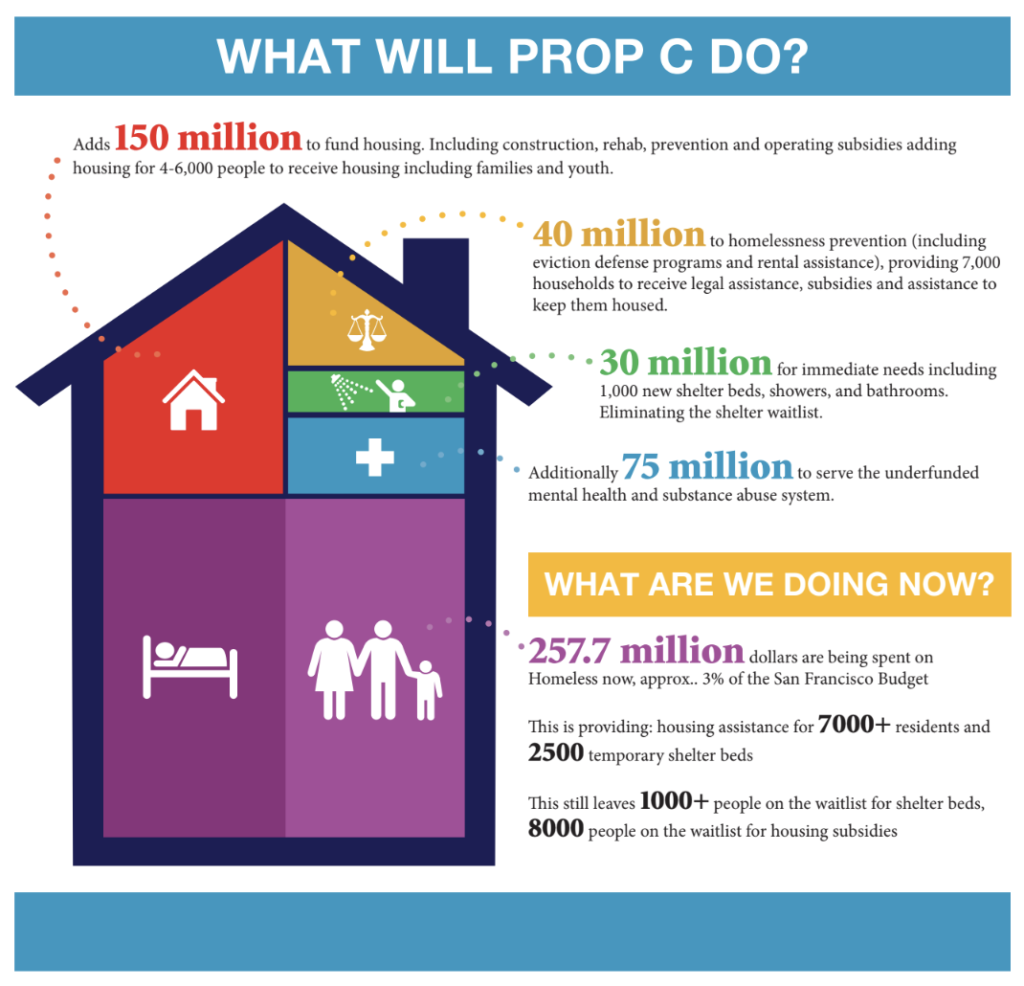Hundreds of San Franciscans joined in a unity rally to show support for November 2018’s Proposition C. The measure, which was passed by the majority of San Francisco voters, will generate $300 million annually by taxing a small number of the City’s wealthiest corporations and will provide thousands of homeless people with housing and homelessness services. Three business associations representing large corporations are suing the proposition, including the Howard Jarvis Taxpayers Association, California Business Roundtable, and the California Business Properties Association. Proposition C and the associations faced off in court on July 3.
Judge Ethan Schulman of the San Francisco Superior Court released an order in favor of Proposition C under the State Constitution. Judge Schulman’s order released in the Proposition C case is the first big step towards realizing the intention of the majority of San Francisco voters that millions of dollars should be raised in taxes to support services for homeless people.
He also ruled that June’s Proposition C, which was also being sued by the Howard Jarvis Taxpayers Association, will provide $130 million annually for childcare and early education, was constitutional.
In both cases, he held that, consistent with the California Supreme Court decision in California Cannabis Coalition, the supermajority requirement in Proposition 13 or Proposition 218 did not apply to the voter-qualified initiatives. He also ruled against the assertion of several taxpayer associations, including the Howard Jarvis Taxpayer Association, that both propositions violated the Charter of the City and County of San Francisco.
In the November Proposition C case, Judge Schulman’s decision articulates several reasons for his conclusions:
“The Court’s resolution of the parties’ competing contentions turns largely on the language of the constitutional provisions in question, the legislative history of the voter constitutional initiatives by which they were added to the California Constitution, appellate authority construing those opinions, particularly California Cannabis Coalition…, and general principles concerning the people’s initiative power.”
The breadth and analysis of Judge Schulman’s order lay the foundation for an ultimate ruling by the Court of Appeal or Supreme Court that the two-thirds vote requirement for cities, counties and special districts does not apply to voter-qualified initiatives.
Howard Jarvis Taxpayers Association, California Business Roundtable, and the California Business Properties Association — the entities that initially filed the lawsuit — will likely appeal the decision. An appeal will then bring the case to the California Court of Appeals.
The Our City Our Home Coalition, a grassroots group of organizations, homeless people, business owners, and concerned citizens who passed Proposition C, released this statement: “We are proud and grateful to the court of SF for affirming THE PEOPLE’S constitutional right to shape the policy of our city. This decision to uphold the will of the voters will result in immediate relief for San Francisco’s homelessness crisis. We appreciate the City Attorney of SF for defending this case against corporate special interests, and all the grassroots efforts of San Francisco’s residents, especially the homeless people on the front lines of the crisis, who organized to make Prop C: Our City Our Home a reality. Lives will be saved from this decision today.”


